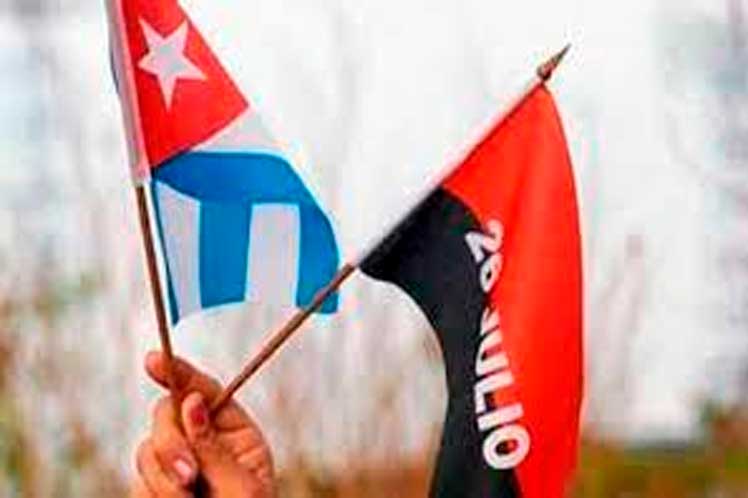On July 26, 1953, young people led by then young lawyer Fidel Castro tried to take over those two fortresses in eastern Cuba. The actions failed militarily but represented the beginning of the revolutionary struggle against the Fulgencio Batista dictatorship (1952-1958).
The attack on the Moncada garrison was the starting point of the heroic deed that would follow years later with the armed struggle in Sierra Maestra until the revolutionary victory on January 1, 1959.
During these days, Cuban residents or working at missions abroad and friends of Cuba and its emancipation process have taken several actions to commemorate the date and at the same time to demand the lifting of the economic, commercial and financial blockade imposed by the United States almost from the very moment of the victory.
In Lebanon, dozens of Cubans, Lebanese and Palestinians accompanied the Cuban diplomatic mission in the celebration of the Day of National Rebelliousness on July 26.
Meanwhile, in Colombo, Sri Lanka, the Peace and Solidarity Organization described July 26 as an affirmation of the independence and sovereignty of the Cuban people after centuries of domination, occupation, repression and subjugation, Bimal Rathnayake, president of the organization, said in a letter.
In Nairobi, Cubans and Kenyans joined to celebrate the anniversary, and Kenyan professionals who graduated in Cuba, along with Cuban residents and diplomats highlighted the anti-imperialist vocation of the Cuban people.
The Group of Solidarity with Cuba in Malaysia also held its general assembly in honor of the 69th anniversary of the attacks on the Moncada and Carlos Manuel de Cespedes garrisons, diplomatic sources informed on Monday.
In several countries, the rallies to commemorate the anniversary began on Saturday, as in Mexico, where nationals and Cubans held a march convened by the Mexican Movement of Solidarity and supported by several organizations, including the Jose Marti Association of Cuban Residents.
Participants demanded that US President Joe Biden abandon the policy implemented by his predecessor, Donald Trump, who reinforced the economic war, and as he promised in his election campaign, they called on Biden to resume the negotiations initiated by then President Barack Obama precisely when he was the vice president of the United States.
In Chile, the Coordinating Committee of Solidarity with Cuba in Santiago also expressed its repudiation of Washington’s hostile policy by placing a large cloth along one of the bridges over the Mapocho River, demanding the elimination of the blockade.
Meanwhile, in Lima, Peruvian political analyst Gustavo Espinoza, president of the SoliCuba cultural solidarity group, stressed that the attack on the Moncada garrison was a milestone in the liberation process in Latin America.
In France, solidarity associations also raised and the emblematic Republic square welcomed dozens of French citizens and Cuban residents in a rally to denounce the US blockade against Cuba and demand its immediate lifting.
The Cuba Si France solidarity association launched the call for the mobilization in early July, which was joined by the France Cuba and Cuba Linda solidarity associations, the French Communist Party, the Europe for Cuba channel and unions from the General Confederation of Labor.
The support for Cuba has also been present on social media, where admirers of the Revolution have expressed their solidarity, counteracting the media campaigns that the detractors of the Cuban social process try to impose.
Other friends of Cuba worldwide are on Cuban soil, as is the case of the Pastors for Peace Friendshipment Caravan, a US solidarity movement that is now in its 30th year and which, with close to 100 representatives, arrived in Cuba with aid to alleviate the blockade.
They will attend the main event on the anniversary of the attacks, which will be held in the south-central Cuban city of Cienfuegos this year.
jg/iff/jf/rc










